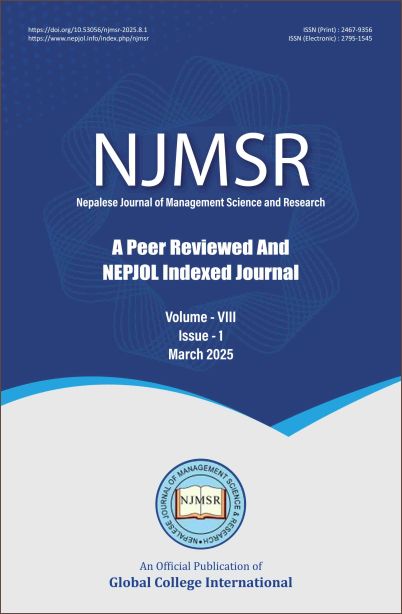Factors Leading to Students’ Satisfaction in Higher Learning Institutions in Nepal
Keywords:
Student satisfaction, Expectancy-value theory, Maslow’s hierarchy of needs, Herzberg’s two-factor theory, Student-teacher relationship, Supportive environmentsAbstract
This study examines factors influencing student satisfaction in Nepalese higher learning institutions, focusing on the student-teacher relationship, faculty preparedness, educational experiences, and institutional services and facilities. Using a quantitative approach, data was collected from 412 participants through convenience sampling. Surveys and path analysis were employed to analyze key determinants of student satisfaction. Results indicate that supportive student-teacher relationships positively impact satisfaction, while faculty preparedness does not directly influence course quality perceptions. Educational experiences, including campus climate and extracurricular activities, significantly predict satisfaction. Although the effect of institutional services and facilities is marginally insignificant, their quality still shapes the student experience. The findings highlight the need for targeted interventions to improve student satisfaction and educational outcomes. These insights can guide policymakers and university administrators in fostering supportive learning environments through enhanced student-teacher relationships, faculty evaluation, and service improvements.
Downloads
Downloads
Published
How to Cite
Issue
Section
License

This work is licensed under a Creative Commons Attribution-NonCommercial-NoDerivatives 4.0 International License.
This license enables reusers to copy and distribute the material in any medium or format in unadapted form only, for noncommercial purposes only, and only so long as attribution is given to the creator.

